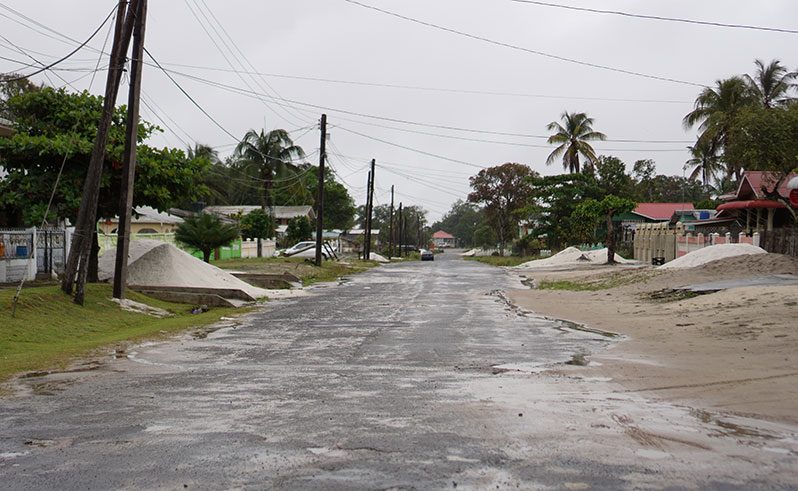A developing community
THIS week the Pepperpot Magazine visited the scenic village of Wisroc, Linden, Region 10 (Upper Demerara-Upper Berbice) to highlight the way of life of the people and the village. This village is very large and is divided into phases and the Old Housing Scheme is where the self-help and Linmine hire-purchase brick and wooden houses still stand.
This village goes up and down hill and it is situated deep in Wismar and it is a place where a mixture of people co-exist as a large family and look out for each other; as such, newcomers and visitors would be spotted immediately.
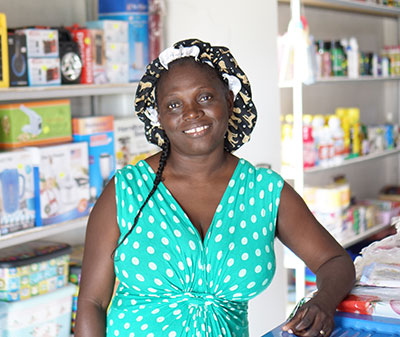
Wisroc can be considered a ‘green’ village because of the rich foliage of greenery and numerous trees, plants, vegetables and fruits that are grown in almost every land space. The soil is fertile and it causes the crops to flourish and the vegetables and fruits grown there are organic and wholesome.
Wisroc is still a developing community and sections of it have an all-weather road while the internal streets are loam-filled and riddled with large potholes. Some parts of the village are without a landline phone service and the cable and internet services are poor, but expensive.
Wisroc is a place of a lot of public servants, that is, teachers and nurses and skilled workers, who have jobs in offices in both the private and public sectors. Wisroc has skilled tradesmen and women and the people are multi-talented and can do more than one job and are also gifted farmers, BOSAI workers and self-employed people.
The community has electricity, potable water supply and it can do with some street lights and upgrading of the internal streets. Wisroc Village was birthed out of a self-help initiative and was controlled by a coop society which became defunct more than 20 years ago.
The Village is managed by the Community Development Council (CDC) and the Chairman is Deron John and its members are all villagers. The village has a nursery, a primary and the Wisburg Secondary School, a health centre, the Stacey Walters Library, a community centre ground, a police outpost and a playfield.
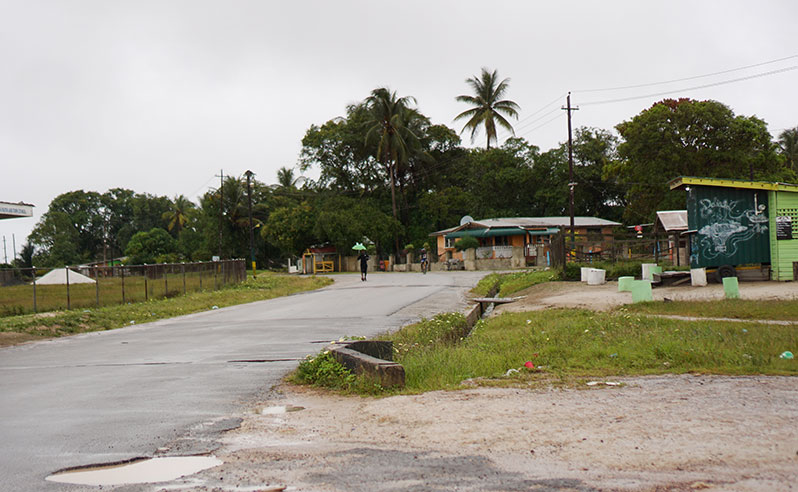
Wisroc Village has everything in terms of shops, eating places, restaurants, roadside small businesses, greens and fruits are sourced from within the village and grown in kitchen gardens and farms and most agencies can be accessed in central Wismar. Wisroc is a clean community and it has a lot of houses under construction in some sections, while the Old Housing Scheme has varying sizes and larger structures and some very vintage designs and layouts.
is run by the now-defunct coop society.
Wisroc Village was established and built by residents through self-help means and it is a model community that has grown over the years and is still developing, even though infrastructural works have been moving very slowly.
The teacher/store owner of Phase One B, Wisroc
The Pepperpot Magazine met a villager, Aretha Murray, during its visit to the community this week. She is a teacher and has a side business at her home, a hardware and a variety store, the only one of its kind in the village, Phase One B.
Murray reported that she is originally from Canvas City, Wismar and in 2011 she got a plot of land in Phase One B, Wisroc and constructed a house and relocated.
“Life here is like ‘one day up, one day down,’ but the place is quiet and peaceful and it is a developing community which is very large,” she said.
The mother of three related that there are about 600 houses in Wisroc Phase One B and some are still under construction as was seen and unoccupied, while others are fully built and are being occupied.
She is, however, advocating for better roads, drainage, street lights and landline phones.
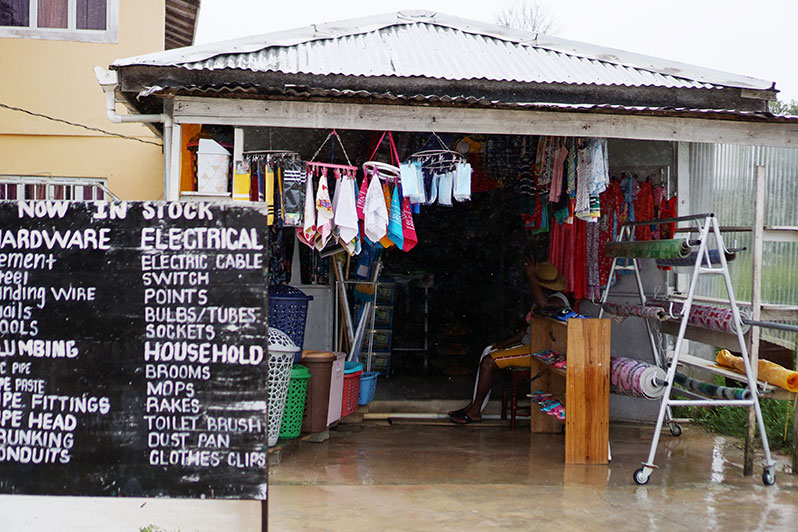
Murray disclosed that a plot of land was allocated for a playfield, but it has been cleared and a few houses have been erected and fenced; as such, that project has been put on hold.
“I started this business since 2017 because there was no such business in this area and it has become a place where villagers could come and get any little thing reasonably priced and I also provide employment for one person in the community as a small business,” she said.
The teacher stated that the people in the village support the business fully and for that she is grateful and they live well among each other.
She would make wholesale purchases in the city at least once a month to stock up on supplies and replenish goods for the store.
Murray is attached to the New Silver Hill Secondary School and has been instrumental in both face-to-face schooling and virtual learning since the pandemic, a year ago when schools were closed.
She stated that on Mondays she would host the online sessions with her students and on Thursdays and Fridays, she goes to school to mark worksheets and attend meetings.
“In the virtual learning a lot of students claim they do not have internet access, so that prevents them from the zoom and Google classes and only about seven to nine students participate in the online sessions,” she said.
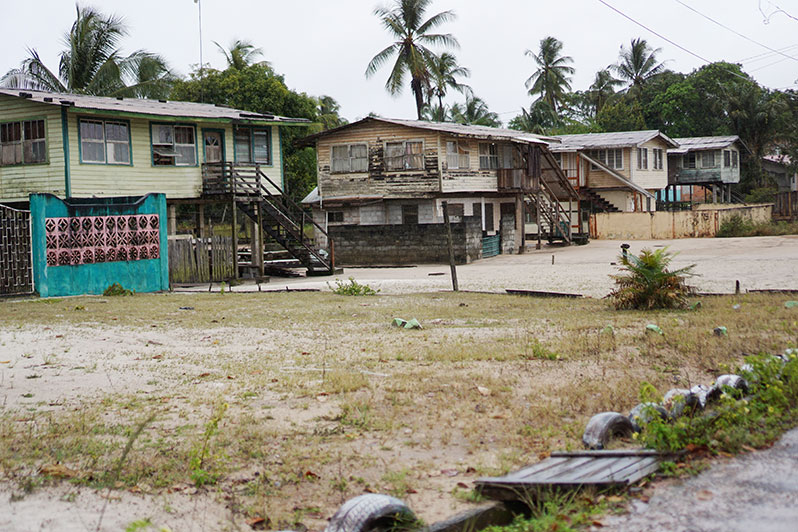
In addition, the bandwidth for the internet is very poor and unreliable, so that also poses a problem for virtual learning.
As for the worksheets distributed, only some students would complete it, although there are about 26 to 30 students in her class.
Murray explained that some students haven’t been responding to any form of teaching and whenever school re-opens, a lot of them who have attained the age of 16 will not return and it is a sad prospect.
She is advocating that an ICT hub be installed in the village for the benefit of all schoolchildren, especially those who have challenges accessing the internet to promote learning via tablets and laptops during the pandemic.





.jpg)


